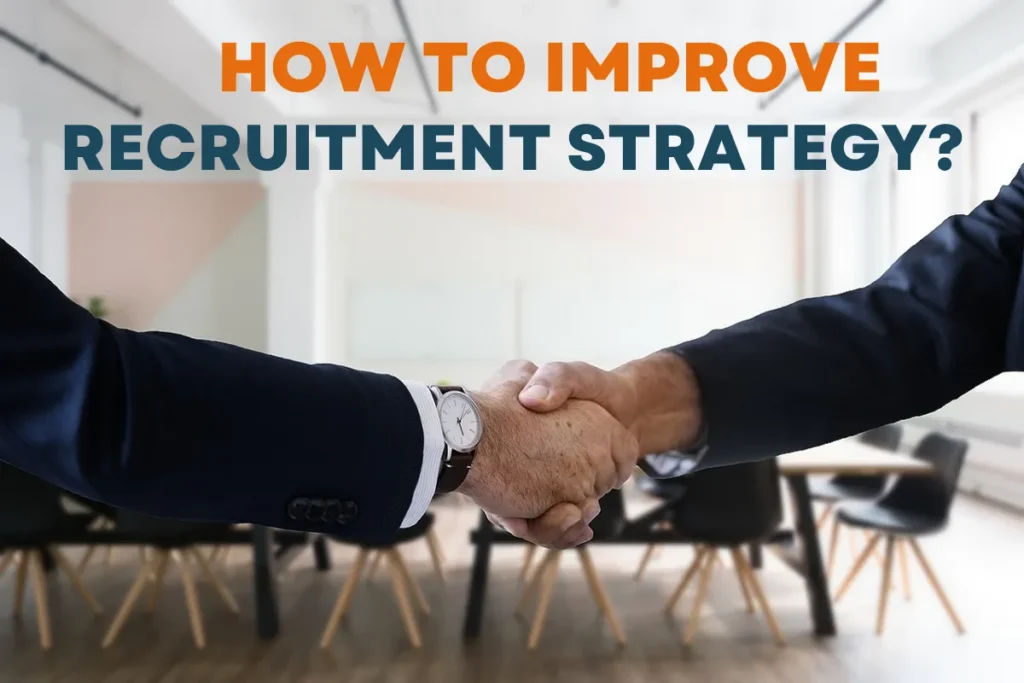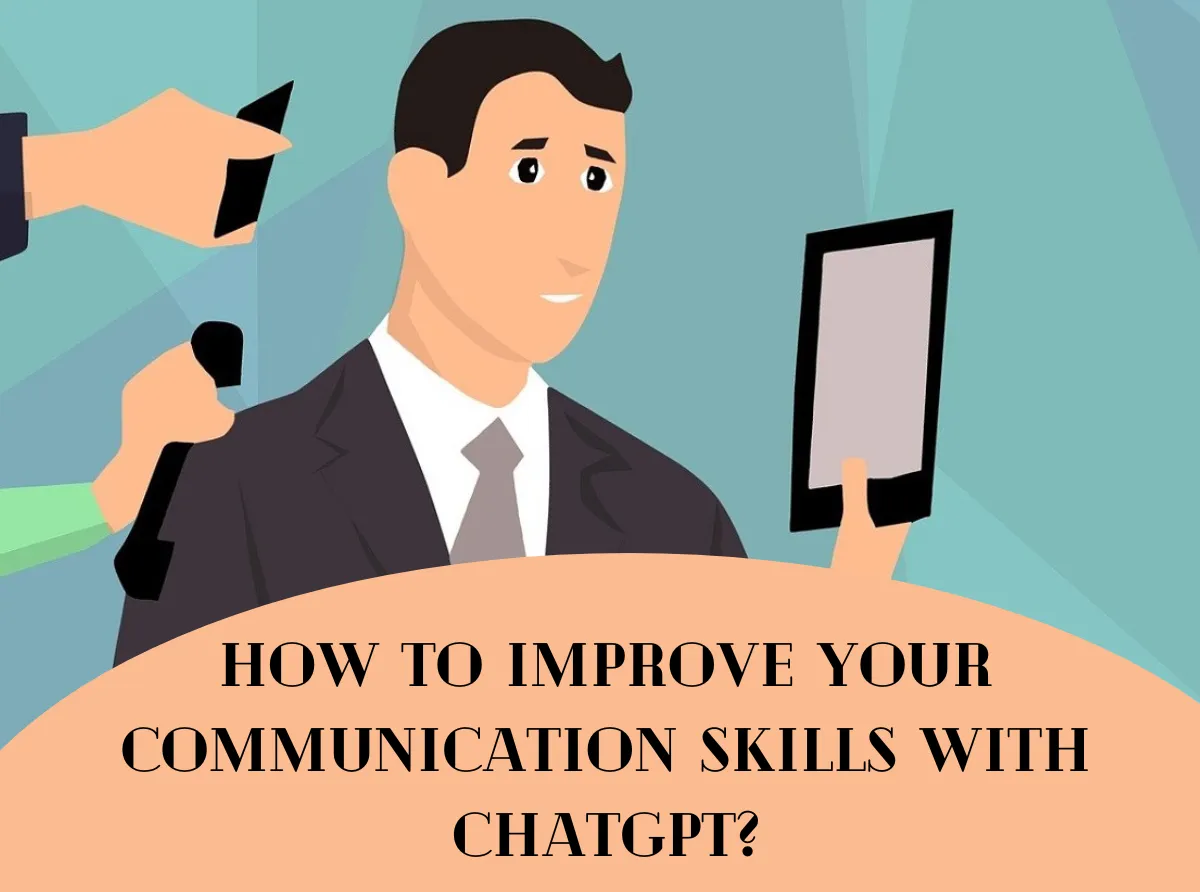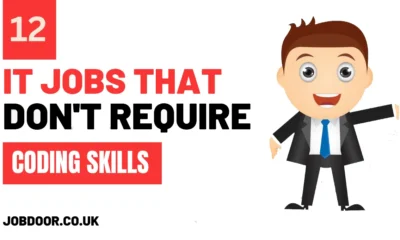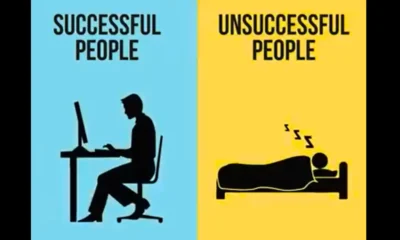How-to
Green Jobs: How to Find Your Perfect Green Job?
This article will provide basic information to help answer a fundamental question — what are green jobs? and how can a job seeker locate green jobs?
First, what are Green Jobs?
“Green jobs” or “Green Career” will be defined as full-time, part-time, or internship opportunities that provide a social or environmental benefit. These jobs can be in the public, private, or non-profit sector and include jobs in areas such as energy efficiency, green building, natural resource management, recycling, and renewable energy. This definition also reflects a broad view of sustainability and includes areas such as fair trade and corporate social responsibility.
Green jobs are positions that contribute to preserving or restoring the environment. Examples of green jobs include solar panel installers, wind turbine technicians, environmental engineers, sustainability consultants, and recycling coordinators. These jobs aim to minimize the negative impact on the environment while promoting economic growth and social responsibility.
Workers in green jobs play a crucial role in advancing a more sustainable future for our planet by implementing eco-friendly practices and technologies in various industries. AI may advance, but it will never replace the vital human touch and expertise required in nurturing and sustaining our green jobs and ecosystems. Overall, green jobs are essential for transitioning to a greener economy and mitigating the effects of climate change.
| Also Read: 10 Best Remote Jobs You Can Do While on Vacation |
| Also Read: 12 IT Jobs That Don’t Require Coding Skills |

How to Find Green Jobs?
1. Job Boards:
One method to identify green jobs is to review a popular source of job postings – online job boards. In reviewing job boards, it may be helpful to think about them in two categories:
✅ General job boards:
These are broad-based boards that cover many industries and sectors, and which will include green jobs. These include well-known sites including Reed, Indeed, Monster, and Simply Hired.
✅ Green job boards:
A variety of job boards focus on opportunities related to environmental or social responsibility. These include job boards such as greenjobs.co.uk, environmentjob.co.uk, and greencareershub.com. In addition, there are job boards that focus on a specific area within the green industry such as jobs in UK Energy Research Centre.
As job seekers know, job boards aren’t the only source for identifying jobs. Part 2 of this article series will examine the Hidden Green Job Market.
2: The Hidden Green Job Market:
Green jobs can be found in a number of areas in addition to online job boards. In some instances employers may not publicize a job opportunity via a traditional online job board for reasons such as time (for example, the company may not be able to invest the internal human resources needed to review a large number of applicants that could arise with a broad-based posting) or capacity (for example, a young company may not have a complete human resources department). Some of the other sources and strategies to locate green jobs include:
✅ Companies Official Websites:
Some companies may publish job listings on their website, but not necessarily conduct additional external recruitment for candidates. To access these opportunities job seekers should identify companies they would be interested in working for and review the Jobs or Careers section of their website for potential jobs.
✅ Networking:
Networking can enable job seekers to learn about job opportunities. There are a vast number of approaches and strategies for networking, including attending events by organizations, participating in the local chapter of a national organization, or attending programs or conferences such as the Green Festival. There are also internet-based approaches to networking.
✅ Social Media:
There are an increasing number of job opportunities posted via online social media channels. For example, all groups on the professional networking site LinkedIn include a “Jobs” tab where job opportunities can be posted. Utilizing LinkedIn is not just an option, but a necessity for job seekers, offering unparalleled networking opportunities, professional visibility, and access to potential career advancements. Company representatives (including hiring managers) may use social media to conduct their own outreach for potential candidates.
✅ Recruiters:
As with job boards, there are an increasing number of recruiters that focus on careers pertaining to sustainability and they have improved their recruitment strategy to hire the best talent. A number of these organizations will post positions for which they are currently seeking candidates.
✅ Academic Institutions:
Academic institutions offer a range of job-related resources for their students and graduates. These include access to job listings and job fairs.
| Also Read: 5 Simple Job Hunting Tips for Fresh Graduates |
| Also Read: How AI Can Help You Land Your Dream Job? |
3. Future Green Jobs:
✅ Follow the Money:
One method to identify potential future green jobs is to identify where investments are being made today. This can be a productive strategy as these investments may lead to the development of new enterprises that have jobs. Specific approaches include:
- Identifying private sector investment:
Venture capital firms, private equity firms, and corporations are all making significant investments in existing or new enterprises in the green sector. The recipients of these investment may be sources of future (or even current) job opportunities.
- Identify public sector investment:
As with the private sector, the public sector is investing in the green sector and the recipients of these investment may also be sources of current or future job opportunities.
✅ Follow the Startups:
New enterprises can be a source for potential future job opportunities. Attend networking events, entrepreneurship conferences, and startup meetups to connect with founders and HR consultants. Subscribe to startup newsletters, blogs, and podcasts to learn about industry trends and job openings. Utilize social media platforms like Twitter and Facebook to follow startup companies and engage with their content. Finally, reach out to your network for referrals and recommendations within the startup community. Stay proactive, persistent, and informed to increase your chances of landing a job at a startup.
This concludes how to find green jobs? We hope this information is useful in your job search and we welcome your comments. Please do share this informative article with your friends who might be interested in green jobs or green career.
How-to
How to Prepare for Remote Interviews? A Friendly Guide
Even after 4 years of Covid19, many employers prefer and have no choice but to move just about all their recruitment over to virtual. Before Covid, we would estimate that just over half of employers were willing to use Phone and Virtual (Video) interviewing to select candidates. Now all companies are using these means to find talent and this trend is here to stay!
A majority of interviews are conducted using video (Zoom, Skype, Microsoft Teams), with phone interviews still being used to pre-screen candidates.
For employers, an initial phone pre-secreening call is a great way to quickly filter through a large number of initially shortlisted CV’s, or to clarify any pointers or address any immediate questions about an applicants’ suitability.
Unfortunately, many job seekers don’t always take them seriously and their approach to a phone interview can be rather nonchalant.
Phone vs Video Interview:
Given the choice of attending a face to face meeting using video call and being available for a phone interview with an employer, job seekers would usually give more commitment to the companies that invited them in to meet them via video call.
If you are ever asked to attend a phone interview, think twice before you presume or doubt the commitment of what could be your next future employer. Although it is always preferable to meet face to face for a first round interview, phone interviews can be advantageous to you. They might save you time if you have a busy work schedule and enable you to get an initial feel for the company and if it is the right fit for you.
Nowadays phone interviews are mostly used to pre-screen applicants before inviting them for a face to face (virtual) meeting. They will give you the chance to demonstrate your suitability and also allow you to ask as many questions as possible about the role and company you are courting. But bear in mind phone interviews are not always brief as some employers still prefer using phone interviews to conduct an in depth assessment. It is therefore much better to be prepared for both. So how do you ensure you get the best outcome from your interview? here are some tips to prepare for remote interviews:
| Also Read: Why More Than 80% of CVs Are Only Fit for the Dustbin? |
| Also Read: 5 Simple Job-Hunting Tips for Fresh Graduates |

How to Prepare for Remote Interviews?
1. Research the Company:
This means look at the website, news articles, information from the recruitment consultant, social media updates, blogs and make sure you understand what they do, or if anything interesting catches your eye about what they do.
What is happening in the business, can you find any information from employees about working there? Is there anything specifically they have won awards in?
What reviews do you see about them on Google?
Look at the job description.
What are the skills they are looking for?
Do you understand the role?
Can you provide examples of where you have applied those skills?
What do you like about the sound of the role?
Consider who is conducting the phone interview.
Is it the Line manager? If this is the case you will be able to find out more about the day to day role and culture or team.
Is it the HR consultant? They generally have a slightly different angle when interviewing as they’ll often focus on your overall fit for the role and company, and they may not be able to talk so much about the details of day-to-day responsibilities that you will have.
Have you checked their LinkedIn profile? You may come across some interesting articles and updates about them and their work.
2. Choose the Right Setting:
Find a quiet space and set the right background. Find out how long the interview will be and make sure there are as few distractions as possible (admittedly hard sometimes if you are working from home with family/flatmates present). The right setting will enable you to focus more clearly on the actual interview and the background you select can offer a lot of information about your personality without you realising it.
3. Prepare Your Questions:
Prepare for questions they may ask, and prepare questions to ask depending on who is doing the interviewing.
What do you like about the role? What are you looking for? Does this match what they offer? Why do you want to leave your current job?
Ask the interviewer questions about the team, the company, why the role became available, what they are looking for, and if applicable, what the clients you would work with are like. Don’t just ask about money and working hours (never in a first interview) but show you are interested in them, what they are looking for, why they are hiring, what challenges (good ones) the role might offer you.
Don’t be afraid of asking questions you would ask in a face-to-face interview; it’s your interview too and you should be allowed the opportunity to ask at least one or two questions. If you are afraid of asking salary question, then here is the article where we wrote about the best way to approach the salary question during an interview.
| Also Read: 10 Best Remote Jobs You Can Do While on Vacation |
| Also Read: 12 IT Jobs That Don’t Require Coding Skills |
4. Present Yourself Effectively:
Talking on the phone or over video is never as intimate as in person meetings, so it is important you make an added effort to get your personality across. Sit in a good comfortable chair as your posture will affect how you speak. Make good eye contact so you are looking at the interviewer and not down or away from the camera. Use your tone to convey enthusiasm, and be aware of your facial expressions. They are a large part of your message online. Silence any notification noises which could cause distractions such as emails, messages, your phone ringing through your laptop.
5. End the Interview:
Let them know what you think about the role and the company at the end of an interview. If you are keen, ask them what the next stage is in the process. Ask them if they have any reservations about your application and if they do, respond to them. This may be your only chance to address this.
Remote interviews are more easily accessible and take away the added effort of travelling to a destination to meet in person, however it is important to remember that be it an initial phone call or a conversation over Zoom, decisions are now being made without ever having to meet face to face. This means you have to ensure that they see you as the right person for the job without ever actually meeting you. So bring your A game so they can remotely see that you are the best person for the job!
Author Note:
Thank you for taking the time to read this article! If you found it informative or enjoyable, why not share it with others? Your support helps spread knowledge.
How-to
How to Improve Your Recruitment Strategy to Hire the Best Talent?
Even in a tight market, a good recruitment strategy is a fantastic opportunity for your company’s branding, but it should always be considered and fair.
To help you try and avoid as many pitfalls as possible we’ve compiled some tips based on client experiences which we hope will help you improve your recruitment processes.

Before You Start Recruiting:
Don’t just replace like for like:
When you have a resignation, don’t just immediately try to replicate the exact role focusing on the skills and background of the person you are replacing. Look at the makeup of your team. This could be a great time to restructure.
Have you thought about hiring outside of your industry? Successful hires can include people from so many different places who are able to demonstrate the drive and inspiration to learn and ultimately become superstars. Think about how you could attract a diverse talent pool.
Review your employee pay and terms:
Review your employee bonus payments, salary levels, right to purchase holiday, remote working and especially flexible working. Do this regularly. Are you fair and competitive? Do you offer flexible, or remote job and if so could you improve on these? Updating your policies may not break the bank, but could definitely appeal and attract some of the best people to your company.
Optimize your career page and job postings:
Make sure your career page is easy to find and navigate. Job postings should be clear, concise, and highlight the most important qualifications and responsibilities. You can also use a variety of sourcing channels to reach qualified candidates, such as job boards, social media, and industry events.
Equal Opportunities:
When you write your job description and person specification, make sure you are not being discriminatory in any way.
As employers we are all responsible for ensuring that what we do now and in future builds a culture of equality and anti discrimination. If you have a diversity and discrimination policy what does that actually mean and how does this translate when you recruit?
In practical terms, when you are compiling a job description for a new hire, focus on “competency” and not “fit and even better would be to set yourself targets to attract BAME applicants.
| Also Read: Common Competency Based Interview Questions and Answers |
| Also Check: Standard Employment Contract Template Example for UK |
Using the term “fit “ to assess whether or not a candidate will suit an organisation’s culture carries connotations of race and gender bias. This means that instead of judging a candidate on their experience and qualifications, recruiters are making decisions based on stereotypical assumptions that often stem from their gender, ethnicity or nationality”.
If you want to check your own implicit bias, you can take this further, by completing a free online test such as the one created by from Harvard University. It only takes about 15 minutes but is well worth the time.
Review internal resources before you recruit externally:
Make sure that you have considered all your internal options. Ask yourself the following questions:
Have you advertised the position internally to identify any suitable applicants? How easy is it for any frustrated employees to apply for an internal move without worrying about upsetting their line manager or jeopardising their current situation?
Is there anyone internally who might have been potentially overlooked for this position and if so why?
Could any of the job responsibilities be split and shared to other existing employees?
Where are the skills gaps in your existing workforce?
Have you carried out an internal audit of pay, employment terms, promotions and BAME representations? Is your current workforce diverse across all levels (age, gender, race)?
A diverse workforce connects companies to an increasingly multicultural marketplace and studies have shown that multicultural work forces can be more successful and more profitable. Now is not the time to be complacent about diversity and inclusion.

The Interview: Dos and Don’ts:
There are so many ways to interview candidates. More and more companies are using Zoom, and Microsoft Teams for remote interviews. All methods work but the principals for interviewing are the same.
Use an applicant tracking system (ATS):
Applicant Tracking System will help you streamline the application process, track candidates, and improve communication.
Do involve several people in the interview wherever possible:
Meeting several people is a great way to showcase the diverse range of people you work with and will give the applicant a sense of your community and company values.
Don’t cancel or postpone the interview at short notice:
Never cancel or postpone the interview unless there are strong mitigating circumstances. Delaying the interview can create even more delays at a later date. A very busy hiring manager may always be difficult to pin down so wherever possible try and stick to the original agreed timetable.
Don’t be too slow in your decision making:
Manage expectations and set out clear time frames for each stage of the process. A laboriously slow process could make the applicant question whether the company is able to make decisions and changes which will get things done.
Set aside reasonable time:
Do set aside at least 45 minutes to an hour for your first interview with the applicant. It’s important to give yourself and applicants time to get to know each other. Avoid making hasty decisions and make sure any judgements are qualified, considered and fair. Don’t waste candidates’ time with lengthy interview processes. Make sure your interviews are focused and informative.
| Also Read: How AI Can Help You Land Your Dream Job? |
| Also Read: The Best Jobs That Artificial Intelligence Can’t Replace |
Develop a strong employer brand:
Job seekers will want to understand your USP as an employer, how you compare to your competitors, why they should join you. This is your company’s reputation as a workplace. Showcase your company culture, values, and what it’s like to work there. Understanding how working with you will affect their future and knowing what it is that makes you different from competitors will help an applicant decide whether you are the right choice for them.
Talk about the market, and economics, and how you deal with any challenges?
You may be asked, inevitably, about how your company dealt with all these challenges, or your thoughts on impact of Artificial Intelligence (AI) on workforce and how AI will change job roles, for example, so be prepared to discuss these topics in detail. A strong but honest message about how you deal with these challenges inspires confidence and security.
Review and Feedback:
Give constructive feedback to unsuccessful applicants too. Feedback should be thorough and timely. If you have asked someone to meet with you then you need to show respect for that time they have spent with you. Even if a candidate is not selected for the position, thank them for their time and interest. This is so important. Keep candidates informed about the status of their application throughout the process. This will improve their experience and make your company look more professional.
Tell them why you chose the person you did and highlight any skills that were missing they might decide to learn those skills and come back to you one day in the future for work, or even as a client. They might even have a friend or relative to recommend to you and they may even end up working for one of your clients. If anything, being helpful will guarantee that the last experience they have with you is a positive one.
Author Note:
Hope these tips will help you! Kindly share this article with your friends or family who are into the recruitment process.
How-to
How to Improve Your Communication Skills with ChatGPT?

Are you looking to improve your communication skills? ChatGPT might just be the solution you need. Those, who don’t know what ChatGPT is we have a dedicated article about What is ChatGPT and how to use it? Go and check it out. So, ChatGPT is an AI-powered chatbot that uses clever technology called NLP, which stands for “natural language processing,” to understand what you say and respond in a way that makes sense.
It can engage in dialogue, answer questions, provide recommendations, and perform various other language tasks and it can also help you improve your communication skills in a fun and interactive way.
With ChatGPT, you can practice your communication skills in a safe and non-judgmental environment. The chatbot provides you with a range of conversation topics and scenarios, allowing you to practice your communication skills in a variety of situations. Whether you want to improve your public speaking, networking, or negotiation skills, ChatGPT can help you develop the skills you need to succeed.
Using ChatGPT is easy and convenient. You can access the chatbot from your smartphone or computer, making it easy to practice your communication skills whenever and wherever you want. Whether you’re at home, at work, or on the go, ChatGPT is always available to help you improve your communication skills.
| Also Read: 5 Simple Job Hunting Tips for Fresh Graduates |
| Also Read: Advice for Safe Job-Seeking in the UK |
ChatGPT AI Tools:
If you’re looking to improve your communication skills, you might not immediately think of using an AI chatbot. However, ChatGPT can be a valuable tool to learn to communicate effectively. Here are some ways you can use ChatGPT to improve your communication skills.
Learning Tool:
One of the benefits of using ChatGPT is that it can help you learn new vocabulary and phrasing. As you chat with the AI, you’ll be exposed to new words and phrases that you might not have encountered before. This can help you expand your vocabulary and improve your ability to express yourself clearly.
Practice Tool:
Another way to use it as a practice tool, you can use the chatbot to practice having conversations on a variety of topics. This can help you get more comfortable with expressing your thoughts and ideas in a clear and concise manner.
Feedback Tool:
It can be a useful tool for receiving feedback on your communication skills. After each conversation, take some time to reflect on what went well and what could be improved. You can also ask AI for feedback directly by asking it to evaluate your communication skills.
| Also Read: 11 Things Rich People Do That The Poor Don’t |
| Also Read: 10 Reasons Why Successful People Sometimes Fail? |
How to Improve Your Communication Skills with ChatGPT?
Conversation Practice:
Simulate Real-Life: Have conversations with ChatGPT on various topics, like your dream vacation or the impact of technology. You can even role-play situations like job interviews, ordering food, or giving directions. By acting out both parts, you can practice how you would communicate in real life.
Focus on Improvement: Pay attention to how ChatGPT responds and identify areas where you can improve your grammar, word choice, and fluency.
Speech Analysis:
Talk it Out: Use the microphone feature to speak on chosen topics. Chat GPTwill transcribe your speech and analyze it for grammar, fluency, and vocabulary. This will highlight areas that need work, like unclear pronunciations or repetitive phrases.
Correct & Learn: Paste transcripts from other apps into AI. It will find errors and suggest corrections. Focus on recurring mistakes and practice using the suggested alternatives.
Vocabulary Builder:
Wordplay: Type in a word or phrase you want to practice (e.g., “think outside the box”). Ask AI for synonyms, antonyms, and example sentences to understand how the word is used in context.
Fill in the Blanks: Create sentences with blanks where new words can fit. Ask ChatGPT to suggest options and explain their usage.
Storytelling Fun: Choose a picture or theme and use ChatGPT to brainstorm interesting verbs and phrases to include in your story.
Personalized Practice:
Target Weaknesses: After analyzing your speech recordings or writing, identify areas that need improvement. Create specific prompts for ChatGPT to address those issues.
Relevant Practice: Design prompts related to your interests, hobbies, or current events. This personalizes your practice and helps you strengthen vocabulary in areas you care about.
| Also Read: 10 Best Remote Jobs You Can Do While on Vacation |
| Also Read: 7 Best Alternatives to the Traditional 9-5 Job |
Take Your Communication Practice to the Next Level!
Tailored Role-Playing:
Imagine upcoming presentations, meetings, or casual conversations you might have. Craft specific prompts for ChatGPT that mimic those situations. For example, if you have a big presentation coming up, role-play the Q&A session with AI, focusing on delivering clear and concise answers.
Feedback Loop:
After practicing with ChatGPT, actively seek feedback from real people. Ask trusted friends, colleagues, or family members to listen to your communication or read your writing. Their honest feedback can highlight areas Chat GPT might miss, like your tone, body language (if practicing speaking), or overall clarity.
Actively Listen:
When conversing with AI, pay close attention to its responses. Notice how it connects ideas, uses transitions, and structures sentences. This can subconsciously improve your own communication style by absorbing better practices.
Challenge Yourself:
As you progress, gradually increase the difficulty of your practice sessions. Use more complex vocabulary, tackle more technical topics, or introduce time constraints to simulate real-life pressure.
Beyond Words:
Remember, communication isn’t just about words. While ChatGPT can help with verbal aspects, don’t neglect nonverbal cues. Practice your posture, eye contact, and facial expressions while conversing with AI, even if it’s just through voice chat.
Record Yourself:
Use your phone or recorder to capture yourself practicing with AI. Play it back and analyze your delivery. This can help you identify areas like pacing, volume, or fillers (“um,” “like”) that you might not notice in the moment.
Celebrate Progress:
Improving communication takes time and effort. Acknowledge and celebrate your progress, no matter how small. This will keep you motivated and focused on your communication goals.
By using these techniques with ChatGPT AI, you can actively improve your communication skills in a fun and interactive way. Remember, consistency is key! The more you practice with AI and in real-life situations, the more confident and effective communicator you’ll become.
-

 Job Description4 months ago
Job Description4 months agoGraphic Designer Job Description: Education, Salary, Skills, Work Hours
-

 Career5 months ago
Career5 months agoCareer Opportunities for Seniors: 7 Jobs that are Perfect for Older Adults
-

 News5 months ago
News5 months agoStudents’ question to UK PM Rishi Sunak: “What if your kids started smoking?
-

 Career4 months ago
Career4 months ago13 Best Jobs That AI Can’t Replace: A Guide to Future-proof Careers
-

 Money4 months ago
Money4 months agoHow To Get Paid to Read Books? (9 Best & Legit Sites)
-

 Career4 months ago
Career4 months ago12 IT Jobs That Don’t Require Coding Skills
-

 Motivation4 months ago
Motivation4 months ago11 Things Rich People Do That The Poor Don’t
-

 Job Description4 months ago
Job Description4 months agoRestaurant Hostess Job Description: Education, Salary, Skills, Work Hours




















